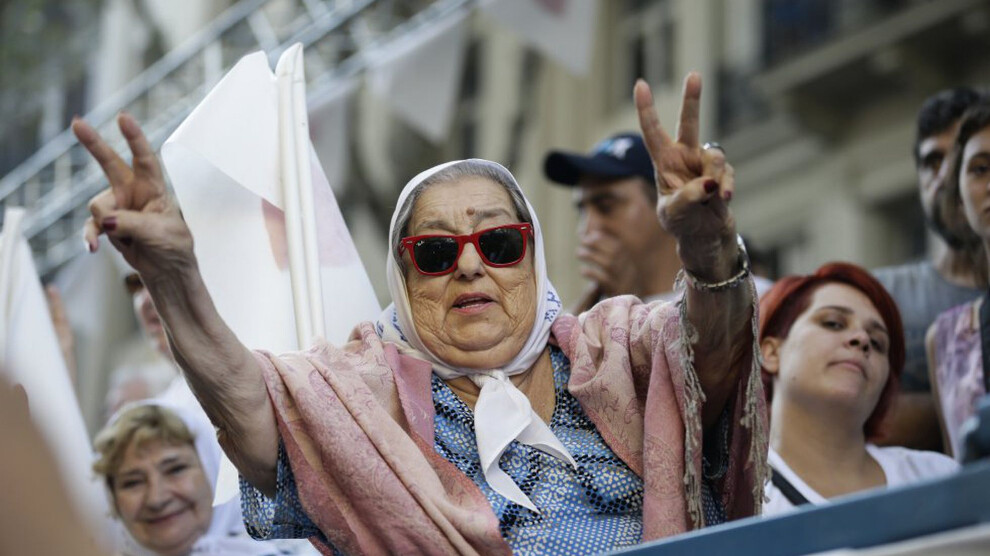Hebe de Bonafini: Leader of Argentina’s Plaza de Mayo dies at 93
Hebe de Bonafini, the leader of Argentina’s Plaza de Mayo, has died at the age of 93. A three-day national mourning has been declared in the country.

News Center- Hebe de Bonafini, human rights campaigner who led the Madres de Plaza de Mayo during Argentina's brutal 1976-1983 military dictatorship, has died at the age of 93. Hebe de Bonafini, one of the co-founder of the Association of Mothers of the Plaza de Mayo, died at a hospital in the city of La Plata, her only surviving child, Alejandra announced. The death of Hebe de bonafini was confirmed by a post from Vice-President Cristina Fernández de Kirchner.
“Dearest Hebe, Mother of Plaza de Mayo, you are a world symbol of the fight for Human Rights, and a pride of Argentina. God called you on the Day of National Sovereignty... it must not be by chance,” Cristina Fernández de Kirchner wrote.
Three-day national mourning has been declared
President Alberto Fernández has declared a three-day national mourning in the country in memory of Hebe de Bonafini. “The Argentine government and people recognize in her an international symbol of the search for memory, truth and justice for the thirty thousand disappeared,” the office of President Alberto Fernandez said in a statement.
Who is Hebe de Bonafini?
Hebe María Pastor de Bonafini was born in Ensenada on December 4, 1928. She got married at a very young age. She became a human rights campaigner when her two sons were arrested and then disappeared under Argentina’s military dictatorship. She was a house wife until her sons Jorge Omar and Raúl Alfredo disappeared in detention in 1977 and Jorge’s wife María Alejandra disappeared in 1978. In search of her sons, she met other women looking for their disappeared children.
She then became one of the founders of the Association of Mothers of the Plaza de Mayo. The association is an Argentine human rights association formed in response to the National Reorganization Process, the military dictatorship by Jorge Rafael Videla, with the goal of finding the desaparecidos, initially, and then determining the culprits of crimes against humanity to promote their trial and sentencing.
